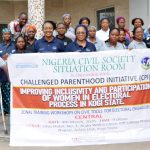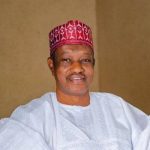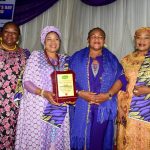The article “The Silence of the Governed: Why No One is Questioning Bago’s Inconsistencies”
By Attahiru Samaila Albara
Dr. Aiyeku Olufemi Samuel Global Human Capital & Energy Management
The article raises several critical issues regarding Governor Mohammed Umaru Bago’s administration in Niger State, Nigeria. The author argues that despite the administration’s grand promises and visible infrastructure development, there is a glaring lack of sustainable policy direction, transparency, and accountability.
*Key Issues:*
– *Youth Unemployment*: The article highlights the staggering youth unemployment rate, with many young people under-skilled, undereducated, or unemployable.
– *Inadequate Power Supply*: Erratic power supply is a significant challenge, with citizens relying on alternative power sources, which is costly and inefficient.
– *Water Scarcity*: Access to clean, piped water is scarce, even in the capital city, Minna.
– *Security Concerns*: Neighborhoods are plagued by teenage gangs, illicit substances, and violence.
Key Issues in Niger State: A Closer Look at Governance Performance
Several issues have become more visible in Niger State, particularly under the current administration, and they deserve urgent attention:
Poor Educational Management and Policies: Public secondary schools, especially in the state capital, suffer from inadequate funding, poor infrastructure, lack of teaching materials, and under-motivated staff. These conditions hinder quality education and long-term human capital development.
Limited Access to Healthcare: The masses continue to struggle with access to affordable or free medical services. Public health facilities are under-equipped and understaffed, leading to high out-of-pocket expenditures by citizens.
Rising Youth Involvement in Drugs and Crime: The growing unemployment rate and lack of structured engagement programmes have led to a spike in youth involvement in substance abuse and crime across urban and semi-urban areas.
Inadequate Housing Facilities:
Urban migration has placed pressure on existing housing infrastructure. There is a visible housing deficit, especially in Minna and other growing towns.
Weak Skills Acquisition and Entrepreneurship Programmes: There is a lack of robust, state-sponsored vocational and entrepreneurial training programmes to provide sustainable livelihood opportunities for youths.
Insufficient Bursary Support for Niger State Students: Many students from the state, particularly those pursuing specialized or technical courses in higher institutions, lack adequate bursary support. Increased funding and targeted incentives are necessary to support human capacity development.
Environmental Sanitation and Waste Management: Inadequate waste disposal systems and poor drainage maintenance contribute to health risks, flooding, and environmental degradation, particularly in the state capital.
Recommendations for Sustainable Growth and Development in Niger State
Education Reform: Prioritize funding and management of public schools, hire qualified teachers, and upgrade infrastructure. Implement school performance audits and community involvement.
Healthcare Accessibility: Expand health insurance coverage, refurbish rural clinics, and provide mobile medical outreach to underserved areas.
Youth Empowerment: Develop drug rehabilitation centres and strengthen youth mentorship programmes. Introduce compulsory skills training for secondary and tertiary students.
Housing Development Plans: Collaborate with the private sector to develop low-cost housing schemes, particularly for civil servants and low-income families.
Strengthen Bursary Schemes: Increase budget allocation for bursaries, especially for students in STEM, education, and healthcare fields.
Environmental Management: Improve waste collection services, develop new landfills, and enforce sanitation regulations. Launch a public enlightenment campaign on hygiene.
Establish Industrial Clusters:
Focus on agro-processing, mining, and SMEs by offering tax incentives, creating industrial zones, and ensuring reliable electricity.
*Monitoring and Evaluation Units:* Set up independent agencies for project tracking and reporting to ensure transparency and minimize waste.
*Criticisms and Recommendations:*
– *Lack of Civic Vigilance*: The author argues that the citizens’ silence and apathy have allowed the government to operate without accountability.
– *Media Complacency*: The media has become ceremonial, recycling press statements and praise singing instead of holding the government accountable.
– *Need for Dialogue*: The author emphasizes the importance of meaningful dialogue between the government and citizens to address policy failures and inconsistencies.
– *Reclaiming Voice*: Nigerlites must rise and reclaim their voice to demand accountability and good governance.
*Potential Solutions:*
– *Establish Independent Media Outlets*: Independent media outlets can provide a platform for citizens to voice their concerns and hold the government accountable.
– *Civic Engagement*: Citizens must engage in discussions, debates, and town hall meetings to demand policy reforms and accountability.
– *Transparency and Accountability*: The government must prioritize transparency and accountability in its decision-making processes and budget allocations.
– *Capacity Building*: The government should invest in capacity-building programs to enhance the skills and employability of young people.
Conclusion
Nigeria’s economic policies over the past two years have been a mix of necessary reforms and policy missteps. While borrowing can be justified when directed toward productive ventures, poor project execution, inflation, and wastages have hampered economic growth. Niger State mirrors these national challenges with additional governance and developmental gaps. To build a more sustainable economy and vibrant state, the government must prioritize transparency, efficiency, grassroots empowerment, and a shift towards production-driven growth. Without these critical interventions, both the nation and its federating units risk deeper cycles of debt dependency, insecurity, and socio-economic stagnation.
Moreso the governor has more two years for first term still running.
Hopefully he will come in for another four years. Hence, he can remedy a lot of gaps because he his the best performing governor in terms of infrastructural development that Niger State has ever witnessed












